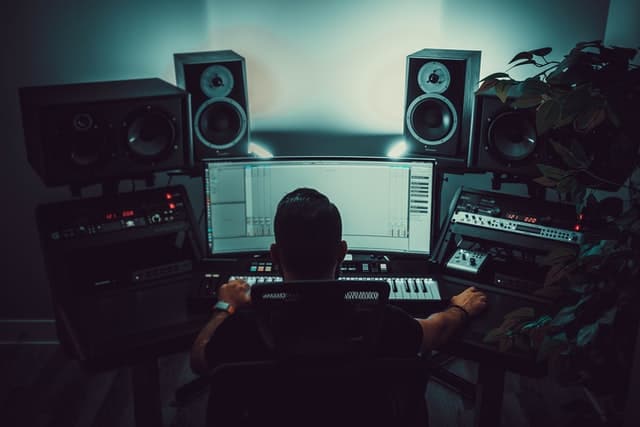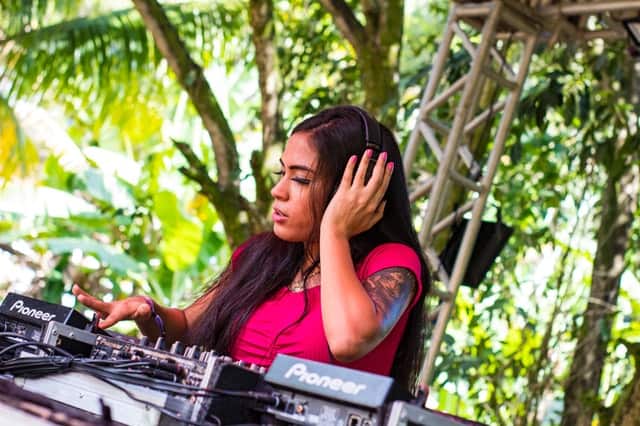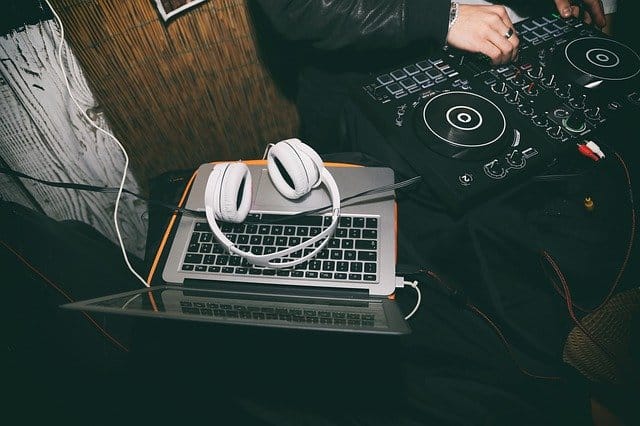DJs and producers are the people we rely on to bring entertainment to our lives. DJs play the music that producers create. But if you want to do both, which is most important to learn first?
Generally, people recognize that producing is the key to making you a successful DJ. Producing also takes the longest to learn, and people can recognize you by your produced music. Therefore, people usually recommend that you learn to produce music first. Of course, if you have an abundance of time, you could choose to learn both simultaneously.
To become either a DJ or a producer requires patience and determination. Neither role is exactly easy to learn, and neither is more important than the other. Keep reading as we break down each role and its place in the entertainment industry.
Which Comes First, DJ or Producer? It Depends on Your Goals
There is no hard and fast rule for which you should learn first. Both roles intertwine with each other, although they remain two separate careers. Of course, you must have music before you can DJ, but it doesn’t necessarily have to be your music.
You can play music from any artist available to you. However, you will pay for the music you play if it is not your own. But you can choose from a wide range of genres and artists to bring your audience the music they love. It is fair to say that you don’t have to be a producer to be a DJ.
Still, the general understanding is that you won’t go far on DJing alone. To get your name out there to the big promoters, you need to produce your tracks. Otherwise, you may never get popular enough to get the big gigs that pay crazy money.
So, in the end, which role you should learn first depends on your goals. For example, if you want to DJ around your local area and make a little money playing the music for weddings and parties, there’s no need to learn to produce. But, if you’re after the big times, you will need to know how to produce your unique music, by which people can recognize you.
Another example, when a radio station plays your tracks, people who like your music might look it up. So, the radio station gives your name exposure, which it needs to reach the big promoters who can then get you those high-paying gigs.
If you are only playing other people’s music, you will give them exposure, which can make them big, but probably not yourself.
Producing your tracks allows you to step out of the shadows and into the spotlight. By learning to produce your music, you might etch your name in stone, as it were. Some people know the local radio DJ’s name, but more people might know the artist names of the songs the radio DJ plays over the air.
That’s the power of producing your music.
A Producer Creates the Songs
Producing music is much more complex than playing music. It takes longer to learn music production than it does to learn how to DJ.

DJing requires an understanding of how people interact with the music. Producing requires knowledge of building that music that makes people want to dance/listen to it. For example, it can be helpful for producers that they know things as:
- Chord structures
- Relationships between chords and notes
- Rhythms
- Tempos
- Dynamics between instruments
A producer must know how to create the music’s mood that will make it appropriate for multiple event types. Suppose the producer includes vocals. In that case, he/she needs to know how to give depth and feeling to a dry vocal track by adding the appropriate effects.
He knows which instruments he can use for his song, how to use them, and also, for example, whether he wants to play them softly or more aggressively. The producer can give emotions to the listeners of his music with the instruments he uses.
Most producers make their tracks digitally. A DAW (digital audio workstation) is the most important software application they use. With this application, they can record, edit, and produce audio.
They need to know what notes they want to play with their instruments. For example, they might find such notes by testing and listening to some notes in a certain rhythm.
The vibe created by the music is the sole responsibility of the producer. For example, he can make it dark and forbidding, or light and energizing. A producer might know how to evoke different emotions with different parts of the song.
A DJ Keeps the Party Going
On the other hand, a DJ needs to know what type of music is appropriate to a setting and how his audience is likely to react to certain songs.
For example, if he is DJing for a 50th high school reunion, he probably doesn’t want to play all the current Top 40 songs. His audience will likely respond best to the songs from their era. If he is DJing for a 16th birthday bash, he doesn’t want to play oldies.

Knowing the dynamics of his audience is key. He needs to know how to read his crowd’s reaction to the music to determine whether he needs to change music or tempos.
A part of DJing is also mixing on the spot, making it more than just playing the right music. Mixing involves transitioning smoothly from one song into the next, by which some tools can help. To make the mixing easier, a DJ can build his set so that the songs overlap each other in:
- Beat (tempo in BPM)
- Key
- Style
Transitioning from a relatively fast song into a slow one or vice versa can be pretty jarring. A DJ must carefully think through his songs, so his transitions are almost unnoticeable. He needs to know the tracks by which he can decide when to fade out the first and fade in the second song.
He also must be intimately acquainted with his equipment. Mixing songs without any tools can be harder to do than mixing with tools. For example, we can automatically beat match songs using the sync button on DJ software/equipment.
DJing requires a diverse skill set, but a good DJ can be indispensable to the party atmosphere.
The Advantages of Being a DJ and a Producer
If you can learn both producing and DJing, you can get a higher earning potential. When you can play as a DJ your unique tracks, you give yourself more potential to become a household name. This potential can get you into huge venues that pay megabucks.
The huge venues can be in other countries, and the promoters of those might invite you if they think that people want to see you at these venues. In many cases, inviting you to such events has the purpose of selling more tickets.
Being a producer allows you to create songs with a unique music style for particular event types, which you can play as a DJ. With your own created songs, it can be easier to make a list of songs that you play at an event since your audience (and yourself) probably wants to hear your songs played by you.
Closing Words
You will probably find that you prefer one role over the other, and that’s okay. But having both skills as a DJ and producer available will open up far more possibilities than either role could offer alone. It would help if you learned how to produce first, which is the overall most logical choice.


This information is very helpful, thanks 👍
Great read, as a beginner who wants to both produce and dj, thanks so much!